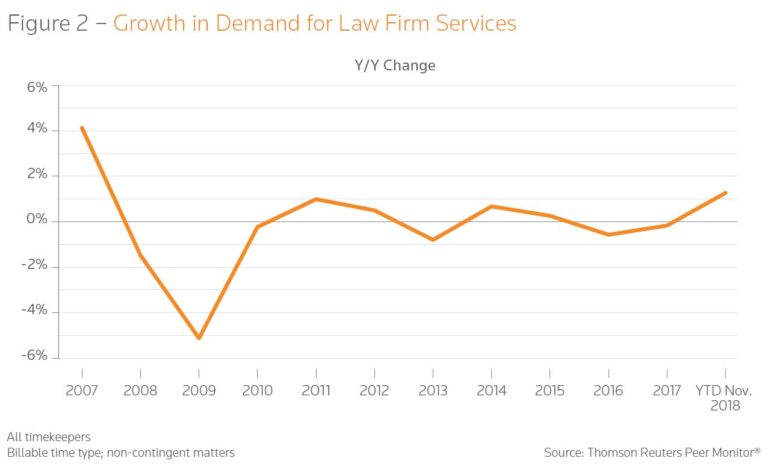Rebuilding the Law Firm Model: “2019 Report on the State of the Legal Market” From Georgetown Law & Legal Executive Institute

The legal market is evolving rapidly, and law firms should seize the opportunity to question long-standing assumptions and re-examine traditional business models that may not be suited for growing challenges such as competition from the likes of the Big Four and more-nimble alternative legal service providers (ALSPs).
The “2019 Report on the State of the Legal Market” issued today by the Center on Ethics and the Legal Profession at Georgetown Law and Thomson Reuters Legal Executive Institute.says that traditional models have “broken apart” from new competition resulting in “unprecedented levels” of client and talent poaching.
The report urges law firms to “jettison some long-held assumptions and … imagine a new model of how the legal market now works,” suggesting more-dynamic models that adapt to specific client needs, firm strengths and market competition.
Clients are demanding more value for their legal spend reflecting the change in legal services from a seller’s market to a buyer’s market. And the market of non-law firm competitors such as the Big Four and other providers continues to grow at double-digit rates to more than $10 billion in annual revenues, according to a report being issued in the next month by Thomson Reuters.
While 2018 was largely positive for the large law firm market, the report points out that there are currently many “mixed signals” about the future health of law firms. For example, while demand for law firm services grew more than 1 percent in 2018, growth was largely concentrated among the very largest firms — the Am Law 100, and in particular the Am Law 50.
“For many years, it was largely assumed by both firms and clients that legal work was labor intensive, could only be performed by lawyers, and that law firms controlled the delivery of legal services,” said James W. Jones, a senior fellow at the Center on Ethics and the Legal Profession at Georgetown Law and the report’s lead author. “That no longer reflects the realities of the marketplace for legal services, where new competition, technology and innovative legal service delivery models are rapidly transforming how legal services are provided. Most importantly, these forces are changing who can provide these services and at what price. At the same time, law firms can offer unique expertise and experience, which, channeled through the right dynamic market models, can compete effectively in changing market conditions — now and in the future.”
The report is jointly issued annually by the Center on Ethics and the Legal Profession at Georgetown Law and Thomson Reuters Legal Executive Institute, relying on data from Thomson Reuters Peer Monitor. It reviews the performance of U.S. law firms and breaks down the new market realities that drive the need for firms to take a longer-range, more strategic view of their market positions.